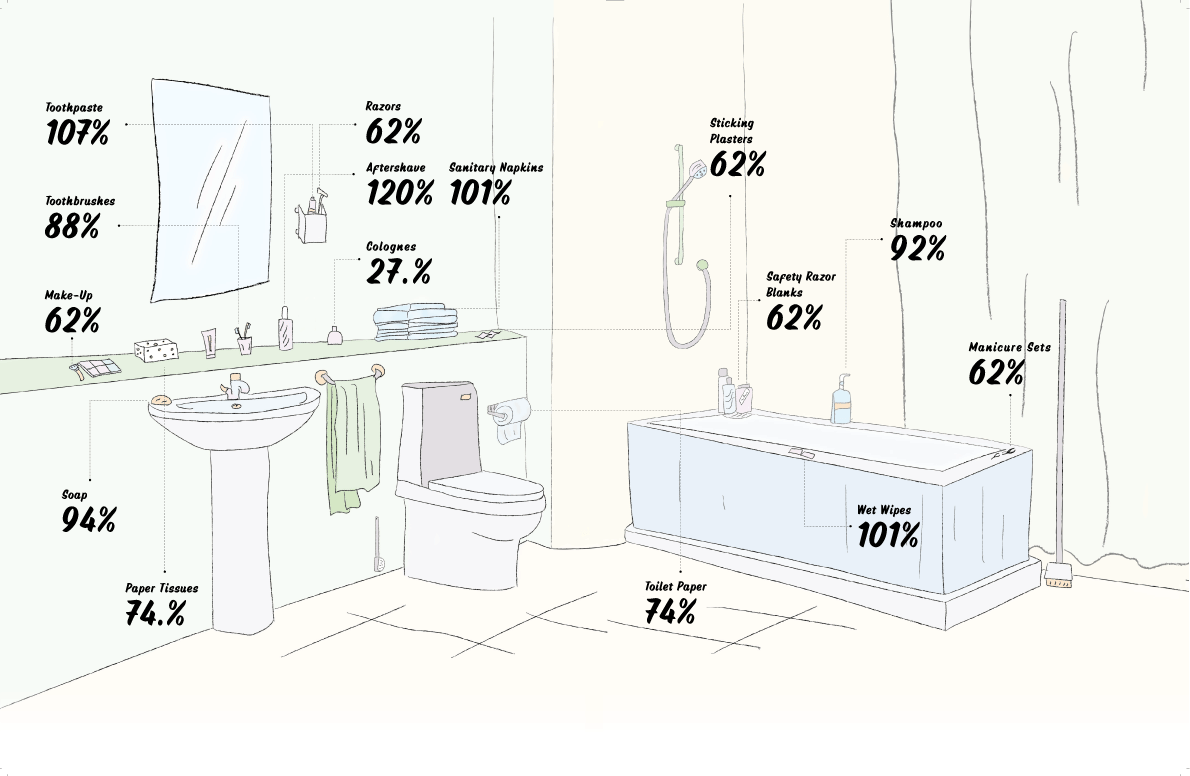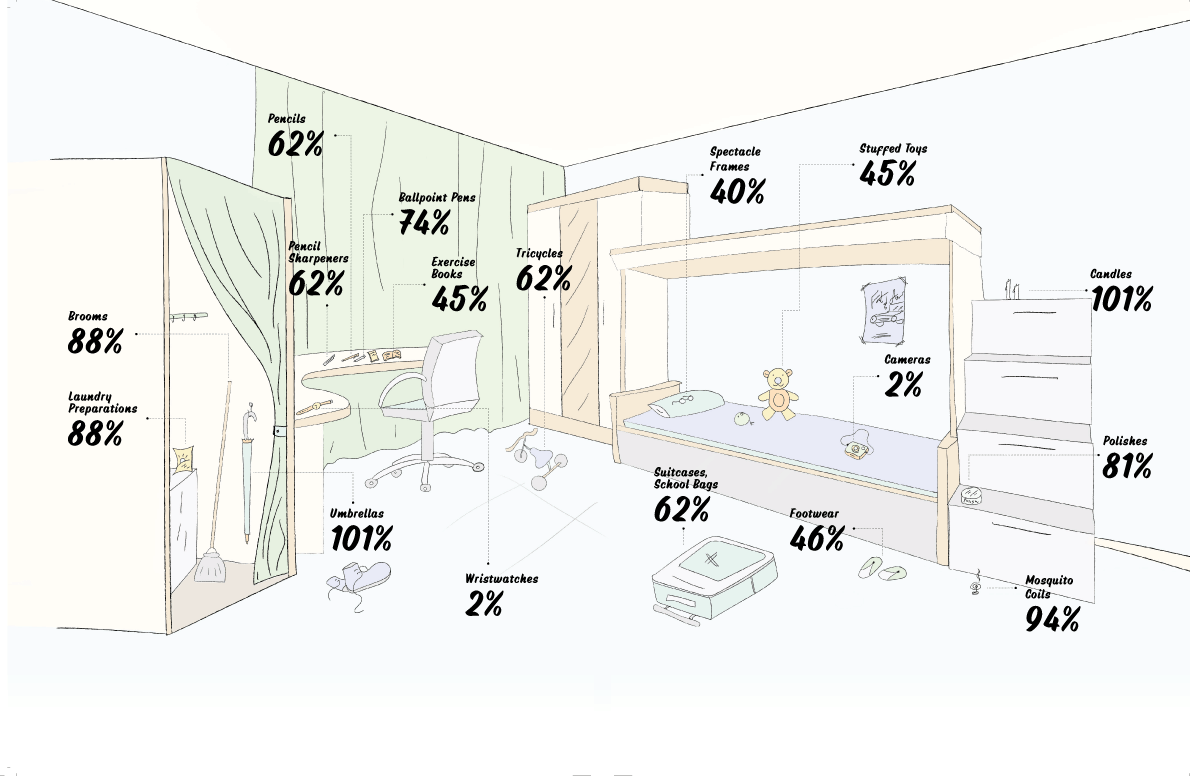Originally appeared on Echelon
By Ravi Ratnasabapathy
The Encylopaedia Brittanica defines the cost of living as the “monetary cost of maintaining a particular standard of living, usually measured by calculating the average cost of a number of specific goods and services required by a particular group.”
“Cost of Living is the most fundamental measure of well-being; how good a life we can lead, the degree of comfort we have, and the number and types of products and services that we can buy.”
In a modern society everybody is a consumer, no one is self-sufficient. The prices we pay for our food and clothing, our necessities and luxuries, and everything else in between are what determine our cost of living.
Naturally, for anyone other than a committed ascetic this is the most important aspect of life. For any politician sensitive to the public it should top the list of priorities.
A lot of our daily necessities, from food to household products are imported. This should allow us to take advantage global efficiencies to source the cheapest or best products, depending what people want. Unfortunately high taxes and poor trade policies drive up end-costs for consumers in Sri Lanka.
Sri Lanka imposes a variety of taxes on imports: customs duty, VAT, Port and Airport Levy, Nation Building Tax and Cess. Although the maximum customs duty is only 30%, once these other taxes are added the total tax can increase to anywhere from 50% to 100%.
Heavy taxes are imposed on food (meat, dairy, vegetables, fruit, coffee, cocoa, pasta, breakfast cereal, biscuits, jams); personal care (soap, shampoo, toothpaste, diapers, sanitary napkins, shaving cream, razors), household care ( washing powder, wet wipes, polishes, brooms, brushes), children’s needs (diapers, pens, pencils, pencil sharpeners, toys).
Older generations who experienced pre-1970s Sri Lanka may recall people cleaning their teeth with fingers (using charcoal or something called ‘tooth powder’), scrubbing dishes with a pol-mudda (coconut husk) or washing clothes by dashing them on a rock.
Toothpaste, washing powder, soap and shampoo are no longer luxuries; if they were a high tax may be understandable but they are necessities, even for the less well-off. Perversely luxuries like perfumes, wristwatches sunglasses are taxed the most lightly.
This has a significant impact on overall household budgets and the standard of living.
Voters need to ask our politicians why they need to tax these items so heavily. Baloo, the bear in the Disney cartoon sang of the bare necessities of life. Our leaders need to understand just how far their tax and trade policies are putting necessities out of reach for ordinary people; the main reason why so many seek opportunities overseas. Local salaries cannot keep up with the cost of living.
For full list of taxes, click here.
Some of the tariffs generate revenue for the government but many are imposed to protect local industry. Tariff protection for local industry comes at a cost: high prices for consumers. Supporting local industry is laudable but instead of protection the support should be targeted to help improve competitiveness and productivity. Firm level productivity depends on:
the sophistication with which domestic companies or foreign subsidiaries operating in the country compete, and
the quality of the microeconomic business environment in which they operate.
Government support to upgrade technology, worker skills, improve access to capital, R&D and infrastructure is positive. These, together with more efficient government processes, improved infrastructure, more advanced research institutions-in short a healthier business environment; can yield long term productivity gains for the economy and the firm. Competitive pressure provides the incentive to improve productivity; the Government needs to work with firms to help this happen.
Price protection for local industry is a blunt tool that hurts consumers and incubates inefficiency. Industry has demanded this for centuries; the French economist Frederic Bastiat explored this in satirical essay in 1845 that addresses the essence protection. It is reproduced, in an edited form, below:
A PETITION
From the Manufacturers of Candles, Tapers, Lanterns, sticks, Street Lamps, Snuffers, and Extinguishers, and from Producers of Tallow, Oil, Resin, Alcohol, and Generally of Everything Connected with Lighting.
To the Honourable Members of the Chamber of Deputies.
Open letter to the French Parliament, originally published in 1845
Gentlemen:
You are on the right track. You reject abstract theories and have little regard for abundance and low prices. You concern yourselves mainly with the fate of the producer. You wish to free him from foreign competition, that is, to reserve the domestic market for domestic industry.
.....We are suffering from the ruinous competition of a rival who apparently works under conditions so far superior to our own for the production of light that he is flooding the domestic market with it at an incredibly low price; for the moment he appears, our sales cease, all the consumers turn to him, and a branch of French industry whose ramifications are innumerable is all at once reduced to complete stagnation. This rival, which is none other than the sun, is waging war on us so mercilessly we suspect he is being stirred up against us by perfidious Albion (excellent diplomacy nowadays!), particularly because he has for that haughty island a respect that he does not show for us.
We ask you to be so good as to pass a law requiring the closing of all windows, dormers, skylights, inside and outside shutters, curtains, casements, bull's-eyes, deadlights, and blinds — in short, all openings, holes, chinks, and fissures through which the light of the sun is wont to enter houses, to the detriment of the fair industries with which, we are proud to say, we have endowed the country, a country that cannot, without betraying ingratitude, abandon us today to so unequal a combat.
Be good enough, honourable deputies, to take our request seriously, and do not reject it without at least hearing the reasons that we have to advance in its support.
First, if you shut off as much as possible all access to natural light, and thereby create a need for artificial light, what industry in France will not ultimately be encouraged?
If France consumes more tallow, there will have to be more cattle and sheep, and, consequently, we shall see an increase in cleared fields, meat, wool, leather, and especially manure, the basis of all agricultural wealth.
If France consumes more oil, we shall see an expansion in the cultivation of the poppy, the olive, and rapeseed. These rich yet soil-exhausting plants will come at just the right time to enable us to put to profitable use the increased fertility that the breeding of cattle will impart to the land.
Our moors will be covered with resinous trees. Numerous swarms of bees will gather from our mountains the perfumed treasures that today waste their fragrance, like the flowers from which they emanate. Thus, there is not one branch of agriculture that would not undergo a great expansion.
The same holds true of shipping. Thousands of vessels will engage in whaling, and in a short time we shall have a fleet capable of upholding the honour of France and of gratifying the patriotic aspirations of the undersigned petitioners, chandlers, etc.
But what shall we say of the specialities of Parisian manufacture? Henceforth you will behold gilding, bronze, and crystal in candlesticks, in lamps, in chandeliers, in candelabra sparkling in spacious emporia compared with which those of today are but stalls.
......Will you tell us that, though we may gain by this protection, France will not gain at all, because the consumer will bear the expense?
We have our answer ready:
You no longer have the right to invoke the interests of the consumer. You have sacrificed him whenever you have found his interests opposed to those of the producer. You have done so in order to encourage industry and to increase employment. For the same reason you ought to do so this time too.
....The question, and we pose it formally, is whether what you desire for France is the benefit of consumption free of charge or the alleged advantages of onerous production. Make your choice, but be logical; for as long as you ban, as you do, foreign coal, iron, wheat, and textiles, in proportion as their price approaches zero, how inconsistent it would be to admit the light of the sun, whose price is zero all day long!
For the full list of taxes, click here.




